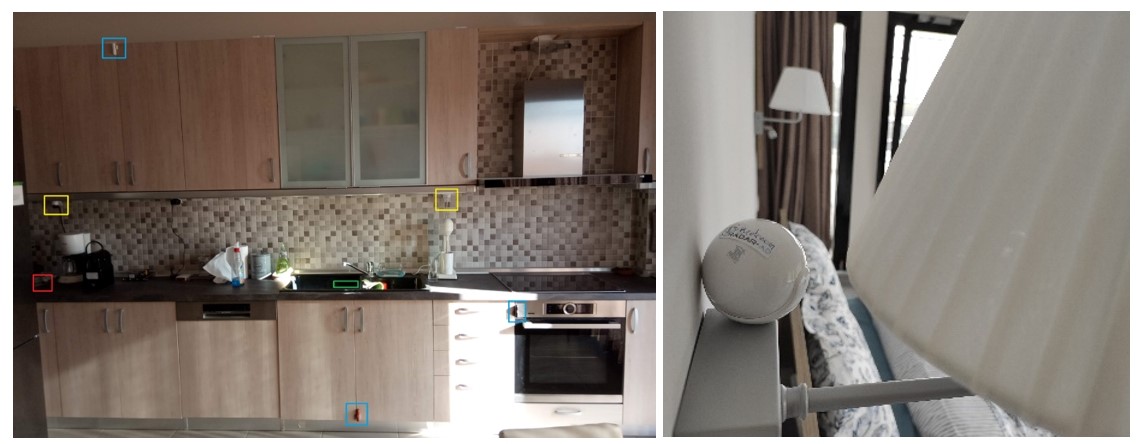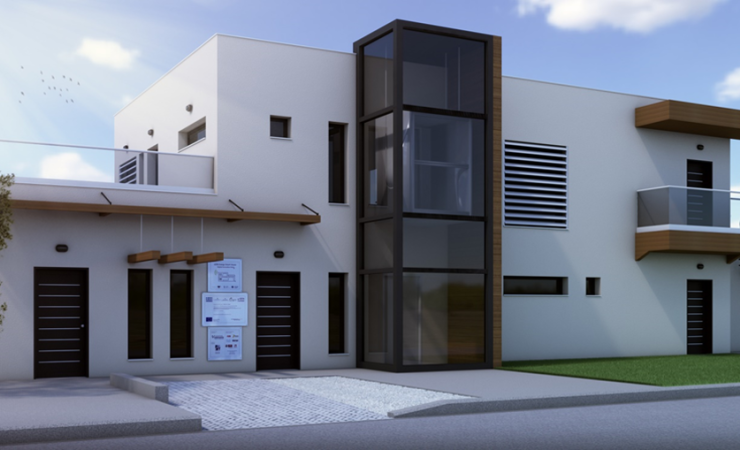The initial signs of the onset of neurodegenerative diseases like dementia are subtle. Your daily activities start to be affected – you might forget to pay some bills, the laundry might begin to pile up, or you might start forgetting to take pills or other medication. Smartphone apps linked to sensors that can detect erratic changes in patterns of daily activities might serve as warning signals that an individual should go for an assessment.
A smart home features a variety of sensors that could be used to monitor the daily activities of at-risk people. Using a smart home equipped with sensors and levera
During their stay, everyone had to engage in at least three pre-defined tasks – making a hot meal, preparing a hot drink, and putting together a cold snack. In advance, the RADAR-AD project defined how long each activity should take and what the
The idea was that people with more severe cognitive impairments would take longer to carry out these tasks, they might take some additional and unnecessary steps, and they would probably repeat actions.
At all times, the participants were surrounded by a series of sensors taking digital measurements – motion sensors in every room, door/cabinet sensors on the main doors and the kitchen cabinets to sense when they were being opened and closed. Wall plugs to measure electricity consumption were added to small electrical appliances, and four panic buttons were added in case of emergencies.
Hot meal preparation poses a challenge
In the first
The researchers posited that the hot meal task highlighted differences between the healthy controls and those with mild cognitive impairment and subjective cognitive decline because it is a more complex task. The more straightforward tasks – making a drink or a snack – didn’t show these differences.

The sensors in the smart home. Image credit: CERTH-ITI
Smart homes improving elderly care
Although more research is needed, the results of the studies are promising, and indicate that smart homes could accurately detect cognitive decline and dementia onset, paving the way for earlier and more targeted interventions that should have better chances of success.
This finding may also ease the concerns of the families of elderly people who live alone, because they can trust that the smart home will spot early signs of dementia and alert them. Smart monitors could also help to prevent the falls and other domestic accidents that are characteristic of early dementia.
“Smart homes are becoming more prevalent nowadays, while the growth of smart home sensors provides many affordable solutions,” says Giorgios Giannios, first author of the Sensors publication. “This research can significantly improve early diagnosis and management of Alzheimer's disease by providing objective and continuous monitoring of people’s daily activities.”
According to Spyridon Nikolopoulos, senior researcher at the Centre for Research & Technology Hellas where the study took place, engaging with both the public and the private sector was key to the success of these studies.
“The community of the RADAR-AD project provided significant benefits, including access to cutting-edge technology and collaboration with leading experts from both academia and industry,” he says. “This partnership facilitated comprehensive studies, like the one conducted in the CERTH-ITI Smart Home, ensuring robust data collection and analysis.”
Looking to the future, the researchers hope that these studies are only the beginning of the role of the smart home in diagnosing Alzheimer’s disease.
“We have successfully tested this platform in real-life smart home scenarios, demonstrating its feasibility and potential benefits. This approach can facilitate earlier detection of cognitive decline and enable more tailored interventions and personalised care strategies,” says Margarita Grammatikopoulou, the first author of the Frontiers paper.
“We are hopeful that in the coming years, this platform will be widely implemented in smart homes, significantly enhancing the care and monitoring of elderly individuals.”
RADAR-AD is supported by the Innovative Medicines Initiative, a partnership between the European Union and the European pharmaceutical industry.
